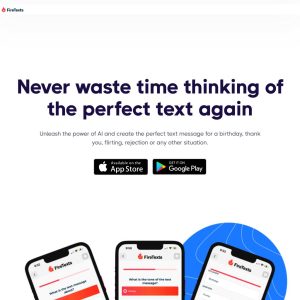Harness the Potential of AI Instruments with ChatGPT. Our weblog gives complete insights into the world of AI know-how, showcasing the newest developments and sensible purposes facilitated by ChatGPT’s clever capabilities.
3D render of a webcrawling cyber-spider.
The First On-line Content material Revolution: From Web sites to Directories to Search
A few of us nonetheless bear in mind the “dotcom” increase from 1999-2001 and the “Cambrian explosion” of internet sites catering to the lots in addition to to the lengthy tail of individuals in search of very particular content material. All you wanted to do was bear in mind the identify. Then got here Yahoo, AOL, and different directories the place web sites competed for placement and scores. Inside a couple of years, these directories have been changed by search engines like google and yahoo, with Google rising as a digital search monopoly. Google developed essentially the most environment friendly crawling bot that visited every web site, adopted each hyperlink, and copied the info. It then processed this information and offered a listing of essentially the most related web sites for a particular set of key phrases. Now, as a person, you not wanted to recollect the area identify; you may merely sort in a couple of key phrases and discover the related hyperlink.
This transition created an enormous dilemma for publishers and newsmakers. From one perspective, you needed to be ranked among the many high ten ends in search output and make all of your content material crawlable and search engine optimized (SOE). From one other perspective, you misplaced fairly a little bit of promoting income coming from the entrance web page adverts, in addition to the visibility of the adverts that the person would have seen if she or he have been to traverse the web site themselves. Most publishers and newsmakers determined to adapt to the brand new realities of search and change into fully-searchable. Even premium paywalled content material grew to become obtainable to search engines like google and yahoo to extend the likelihood of the content material being picked up by crawling bots. This new paradigm additionally led to the creation of latest media which began supplying user-generated content material within the type of blogs and contributor networks. This new media might now compete with conventional media for site visitors and promoting income whereas the majority of the promoting income went to the various search engines.
This redistribution of energy and promoting income has been mirrored within the valuations of publishers in recent times. Some of the well-known and distinguished publishing homes, Forbes, was acquired for simply $415 million in 2016 by the Hong Kong-based Built-in Whale Media Investments, and is predicted to vary palms once more for round $800 million in a deal led by the younger know-how genius and the founding father of Luminar, Austin Russel. Fortune was acquired for a mere $150 million by the Thai billionaire, Chatchaval Jiaravanon, in 2018. In 2013, Jeff Bezos acquired the Washington Submit for $250 million.
Compared, on the time of this writing, the market capitalization of Google was $1.66 Billion, Fb traded for round $760 Billion, and Twitter offered for $44 Billion. These tech giants grew to become the main site visitors aggregators and attracted the vast majority of the promoting income, taking advert income away from the content material creators that fund skilled journalism.
This unfair redistribution of advert income and publishers’ need to get the aggregator site visitors, led skilled media retailers to give attention to Search Engine Optimization (website positioning), developing with flashier titles and catering to client needs fairly than specializing in extra balanced {and professional} reporting. Some governments acknowledged this development and are attempting to implement honest distribution of promoting sources. For instance, Canada launched a invoice requiring the web giants to share promoting income with the publishers, a transfer strongly opposed by the various search engines and social networks.
Publishers’ Dilemma: Ought to You Permit the ChatGPT Bot to Crawl Your Content material?
Whereas there are rumors that ChatGPT was educated on Microsoft Bing’s crawling bot information and far of the opposite information offered by Microsoft, OpenAI revealed its personal internet crawler, ChatGPT Bot as a brief be aware within the documentation. Virtually instantly, on August 8, 2023, Enterprise Bryson Masse of VentureBeat reported that some publishers and creators began blocking the bot to protect their content material. Benj Edwards from ArsTechnica expanded on the story.
It’s no secret that a number of the transformer-based Massive Language Fashions (LLMs) like ChatGPT 4.0 grew to become so good that they began outperforming people in lots of duties together with some analytical duties. These fashions are nonetheless removed from good and most high-quality publishers, together with Forbes.com and Nature Publishing Group, have banned using generative instruments for content material creation by introducing strict insurance policies.
I beforehand wrote an article explaining that publishers with huge quantities of proprietary content material are the more than likely beneficiaries of the generative AI revolution as they can develop their very own reliable chat bots or license the content material to generative AI firms. Nevertheless, in the event that they let their content material be “crawled” and processed by the crawler bots operated by the generative AI firms with out correct watermarking and copyright notices, they’re more likely to lose this benefit. On the similar time, now that the generative AI techniques have gotten extra interpretable and may result in the first supply, not being crawled will lower the likelihood of the content material being accessed.
That is the brand new dilemma that a lot of the publishers will face in the end. At this level, it’s safer to guard the paywalled content material from being crawled and solely make the title and key phrases accessible to the crawler bots and put money into inner generative AI capabilities.
Additionally it is essential to notice that a lot of the printed content material has already been crawled by the various search engines and could also be re-used for coaching of generative AI techniques. For instance, Google invested in full digitization of books and has crawled all the Web. Will these books and this crawled content material be used for coaching the LLMs? Huge exams should be performed to see if this content material was already utilized by the main AI gamers.
Will Generative AI Trigger Additional Decline in Skilled Journalism?
It’s pure to count on some decline within the high quality of content material from the publishers and newsmakers the place using generative instruments is allowed and even inspired. There are a number of spam publishers already doing that and infrequently complicated the various search engines. Nevertheless, we must always not underestimate the additional potential lack of promoting income. Critical publishers require a gradual stream of promoting and subscription income to keep up their excessive editorial requirements. Right here is the place lawmakers might come into play to make sure that impartial media is supported {and professional} journalism is inspired. In any other case, we’re more likely to see the Web being polluted with AI-generated content material produced by the LLMs that demonetized skilled publishers.
Uncover the huge prospects of AI instruments by visiting our web site at
https://chatgptoai.com/ to delve deeper into this transformative know-how.






Reviews
There are no reviews yet.